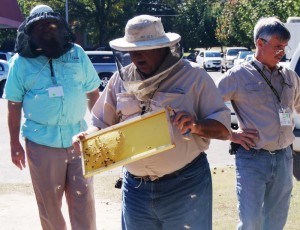Sugar vs. Other Sweeteners: Get the Scoop
Do you use sugar, honey, artificial sweetener, or some combination of them all? Which are better to use? The internet is flooded with myths about sweeteners – both nutritive and low- or no-calorie. Because it’s often difficult to sift through the claims, here’s a quick primer on sweeteners:
There are two types of sugar in American diets. Naturally occurring sugars are found in milk and fruit. Added sugars include any sweeteners with calories that are added to foods or beverages during preparation. One of today’s biggest culprits for added sugar is carbonated soda. Because added sugars contribute extra calories with zero nutrients, the American Heart Association recommends that everyone try to limit the amount of added sugars in their diet. One way to do that is by using artificial sweeteners.
Artificial or non-nutritive sweeteners are often used for weight control or diabetes management. Because they aren’t carbohydrates, these sweeteners don’t raise blood sugar levels. Approved non-nutritive sweeteners have to pass rigorous government safety assessments before being accepted for sale. They can be safely consumed by the general public and do not cause or increase the risk of cancer or other health conditions. They may help with weight management when used as part of a sensible meal plan. Many rigorous studies support the safety of various non-nutritive sweeteners, including over 200 studies on aspartame alone.
High fructose corn syrup is a sweetener made from corn starch. It has the same calories per tablespoon and very similar effects on blood levels as sugar. Honey is a caloric, or nutritive, sweetener that is often promoted as a healthier option than table sugar or sugar substitutes. Its vitamin and mineral content is actually very similar to sugar and both sugar and honey end up in the body as glucose and fructose.
The bottom line is that moderation is the key with both sugar and sugar substitutes. It’s important with sweeteners to look beyond the hype. In the end any processed foods, with or without sugar substitutes, generally don’t offer the same health benefits you get from foods like fruits and vegetables.
References:
Mayo Clinic Staff, Artificial Sweeteners and Other Sugar Substitutes (October 9, 2012). http://www.mayoclinic.com/health/artificial-sweeteners?MY00073
Junod, Suzanne W., Sugar: A Cautionary Tale (May 21,2009). http://www.fda.gov.
CFSAN/Office of Food Additive Safety, FDA Statement on European Aspartame Study (April 20, 2007). http://www.fda.gov
International Food Information Council Foundation, Facts About Low-Calorie Sweeteners, (August 2012). www.foodinsight.org.
American Diabetes Association, Artificial Sweeteners (February 16, 2011). www.diabetes.org/food-and-fitness/
Food and Drug Administration, High Fructose Corn Syrup: Questions and Answers (April 17, 2013). http://www.fda.gov
Hirsch, Larissa, Are Artificial Sweeteners OK to Consume During Pregnancy? (August 2009). http://kidshealth.org
Low Calorie Sweeteners Webinar powerpoint (2011). https://connect.extension.iastate.edu/fffcop?launcher=false.
American Heart Organization, Non-Nutritive Sweeteners (Artificial Sweeteners) (December 13, 2012). http://www.heart.org?HEARTORG


